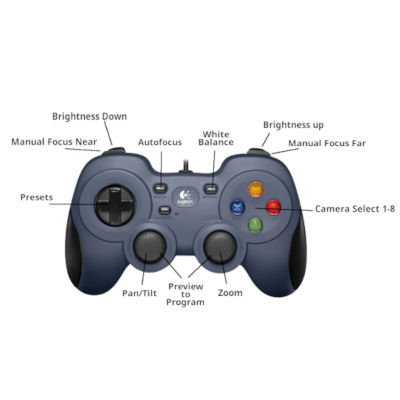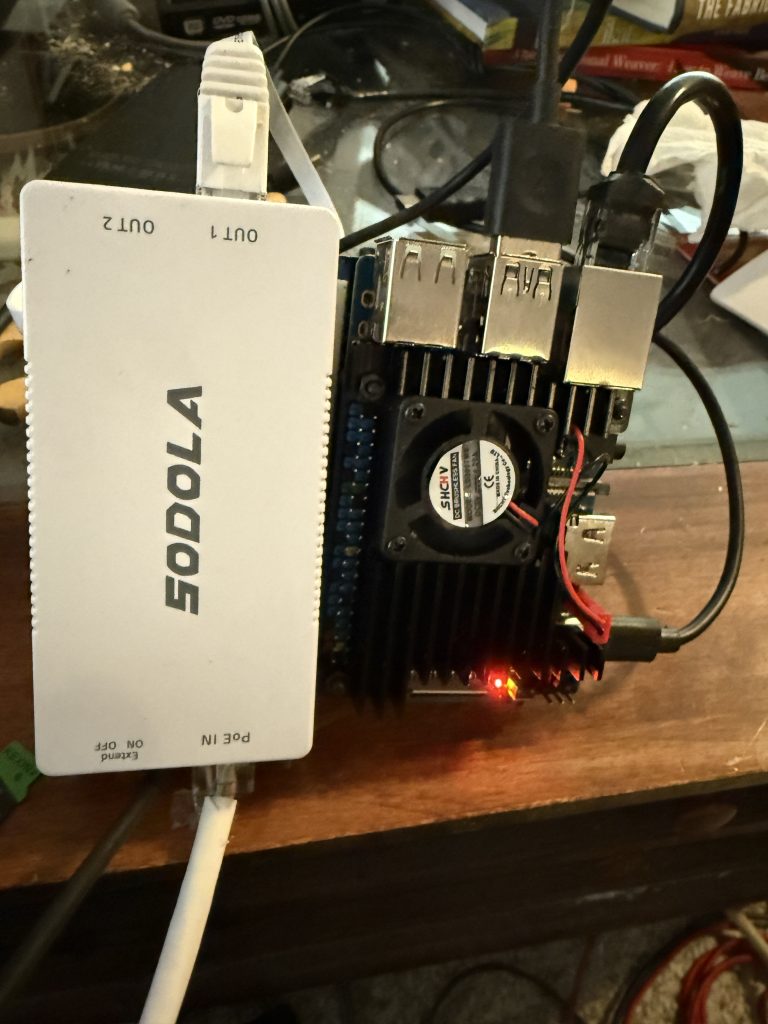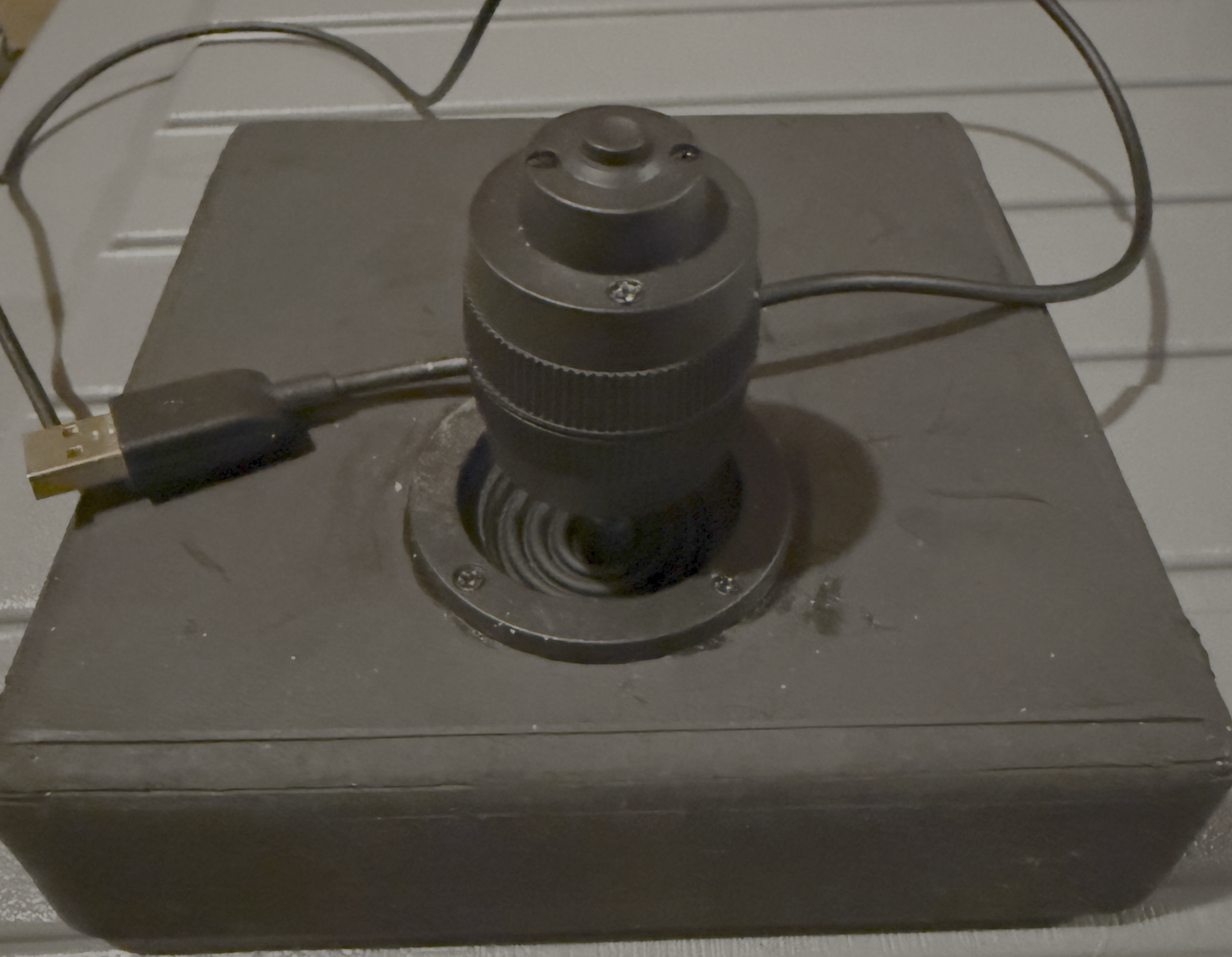Video and Livestreaming
NDI Camera Selector
A program to dynamically map available NDI sources (cameras or others) to a set of video sources or scenes. For use with OBS or VMix. Can also be used in a setup with a BlackMagic Design ATEM connected to NDI->HDMI decoders.

| Last Update | Github | Downloads |
| October 26, 2025 | NDI Camera Selector | NDI Camera Selector Windows Installer version 1.0beta1 Release Notes |
VISCA Game Controller
A program to allow a USB Game Controller or a USB Joystick to control a set of PTZ cameras through the SONY VISCA over IP protocol

NOTE: As of 3/6/2025 Windows Virus Defender claimed this installer contained a “Wacatac.B!ml” trojan. At the time Virus Defender seemed to be failing for anything built using pyinstaller. Apparently this is a known issue for programs created using pyinstaller – see here and here. As of 3/7/2025 15:30 ET “Security Intelligence 1.423.281.0” the problem seems to have been fixed. Presumably Microsoft updated the virus signature files.
If this problem reoccurs, the choices seem to be
- Build the program yourself, using the sources from the Github repository
- Wait a day or so, try again, and see if it still complains.
- Tell Windows Virus Defender to allow the application
| Last Update | Github | Downloads |
| May 17, 2025 | VISCA-Game-Controller | VISCA-Game-Controller Windows installer, version 0.9 |
| October 26, 2025 | VISCA-Game-Controller | VISCA-Game-Controller Windows installer, version 1.0beta5 Release Notes |
Note: I’m leaving both the latest (1.0beta4) and the previous (0.9) installers, in case there are major issues with the beta version.
Pi V4L2NDI Control
A program, and installer script, which provides a front-end to Luke Plassman’s V4L-to-NDI application, which adapts Linux video devices to NDI. This is intended to be used to set up a dedicated Raspberry Pi (or a similar single-board-computer) as an adapter to connect a USB Webcam or a device with an HDMI output (via a USB HDMI Capture device) to a NDI based video/live-stream setup.
This program has been tested on both Raspberry Pi 5 and on an Orange Pi 3B and Orange Pi 3 LTS boards running Armbian. The video delay is shortest on a Pi5, but the other platforms work well for devices with less demanding video requirements – for example, a HDMI capture card connected (via a HDMI splitter) to a PC running PowerPoint.

The project is on GitHub as Pi-V4L2NDI-Control. A version of the application compiled for ARM64 Debian based systems is included in the repository
4 Axis USB Joystick
A basic 4 Axis joystick using the Raspberry Pi Pico2 microcontroller and the easily available JH-D400X-R2 joystick
| Last Update | Github |
| October 2025 | Pico2Joystick |

Other Software Projects
USBRecord-Control
This is a multi-track USB recorder, based on a Raspberry Pi (4 or 5), controlled BitFocus Companion
Hardware Requirements
- Raspberry Pi 4 or 5 with 4GB memory
- USB Audio interface. The canonical use is to connect this to an Behringer XR18 mixer to record up to 18 input channels
- Optional: Elgato Stream Deck for control. Alternatively, you can use the web based, emulated Stream Deck provided by BitFocus Companion
The project is on GitHub as USBRecord-Control
Pi Kiosk
A program to allow a Raspberry Pi, or other similar single-board-computer, to be used for a kiosk display that can be configured through a web browser.

The project is on GitHub as Pi-Kiosk.